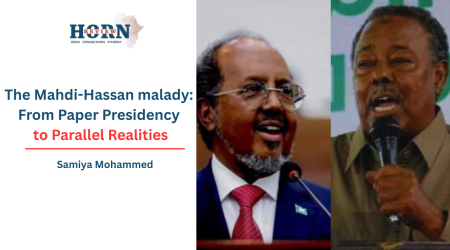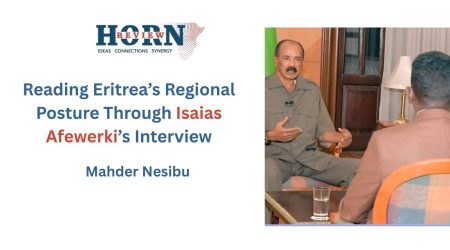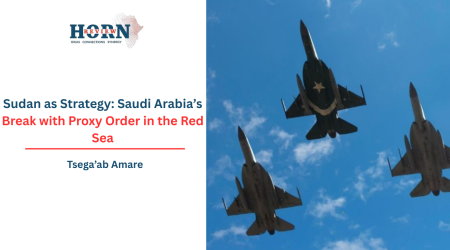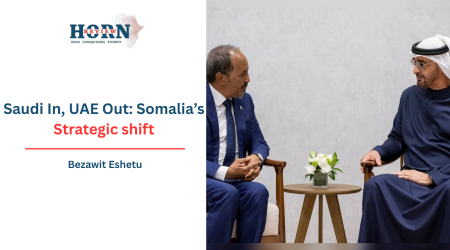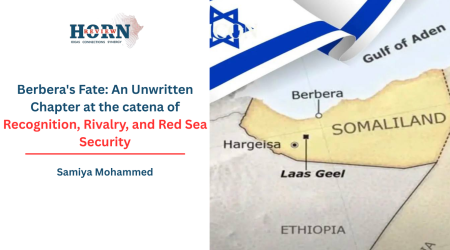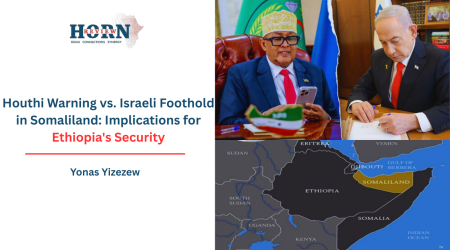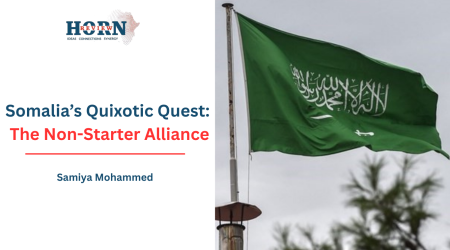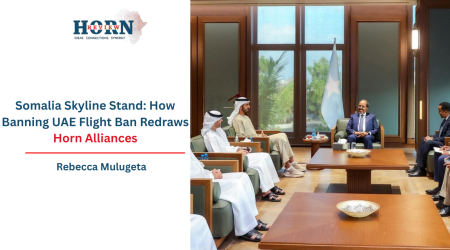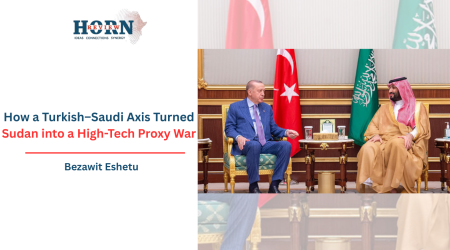
1
May
Strategic Ripples: The Implications of Hegseth’s Yemen-Centered Iran Policy for the Horn of Africa
In the theater of international politics, even brief public statements can carry profound strategic weight. Such is the case with U.S. Secretary of Defense Pete Hegseth’s recent warning to Iran, delivered in response to a Houthi drone strike on a U.S. aircraft carrier. Though the message was aimed squarely at Tehran, its implications radiate far beyond the Persian Gulf – reaching, with particular intensity, the Horn of Africa. Long situated at the intersection of global shipping routes, military interests, and fragile statehoods, the Horn now stands on the edge of renewed external entanglement.
Geography has always endowed the region with strategic gravity. The Bab el-Mandeb Strait, which separates the Horn from the Arabian Peninsula, is one of the world’s most vital maritime chokepoints. Any escalation involving the U.S. and Iran, especially if conducted through naval deployments or proxy engagements, could destabilize this corridor. For Djibouti, Eritrea, Somalia, and Sudan, all of which are already burdened with internal complexity, the risk is dual: being drawn into a confrontation they neither sought nor can easily navigate, and seeing their sovereignty diluted under the weight of strategic utility.
This posture shift also revives the specter of proxy conflict, a pattern with deep roots in the region’s history. The Horn has, for decades, served as a theater where external actors pursue influence by underwriting local factions. Should the U.S. reorient its military footprint around rapid deterrence and kinetic capacity, that pattern may well reassert itself. In Somalia, for instance, militant groups could exploit heightened tensions and the perceived re-militarization of U.S. involvement to deepen recruitment and destabilize already tenuous governance structures.
As the focus shifts toward confrontation, diplomatic space is likely to contract. Institutions such as the Intergovernmental Authority on Development (IGAD) and the African Union, which have facilitated negotiations and peacekeeping efforts in the region, may find their relevance diminished amid a resurgence of unilateral military action. Complex political processes underway in Ethiopia, Sudan, and Somalia, processes that require nuance, patience, and sustained engagement, risk being sidelined in favor of expedient security operations.
Compounding this trend is the growing presence of alternative global powers in the region. China, Russia, Turkey, and Gulf states have steadily cultivated influence through infrastructure investments, arms deals, and strategic partnerships, often unconstrained by the conditionalities that accompany Western aid. Should the United States retreat into a narrowly defined security role, it may inadvertently accelerate this drift, sacrificing long-term strategic influence for short-term posturing.
Hegseth’s pronouncement may have been a moment of political theater, but its aftershocks are very real. For the Horn of Africa, the message underscores a broader recalibration of U.S. strategic intent, one that could redraw the contours of engagement in a region already under strain. Whether this moment marks a reassertion of American resolve or a retreat from multilateralism will depend on what follows. But one thing is certain: in the Horn of Africa, as ever, the ripples of global strategy run deep.


